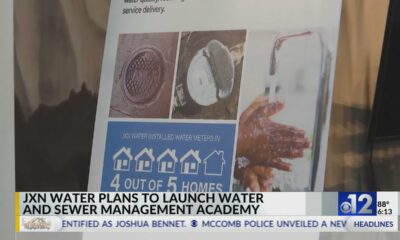Kaiser Health News
Uncle Sam Wants You … to Help Stop Insurers’ Bogus Medicare Advantage Sales Tactics
Susan Jaffe
Thu, 30 Nov 2023 10:00:00 +0000
After an unprecedented crackdown on misleading advertising claims by insurers selling private Medicare Advantage and drug plans, the Biden administration hopes to unleash a special weapon to make sure companies follow the new rules: you.
Officials at the Centers for Medicare & Medicaid Services are encouraging seniors and other members of the public to become fraud detectives by reporting misleading or deceptive sales tactics to 800-MEDICARE, the agency's 24-hour information hotline. Suspects include postcards designed to look like they're from the government and TV ads with celebrities promising benefits and low fees that are available only to some people in certain counties.
The new rules, which took effect Sept. 30, close some loopholes in existing requirements by describing what insurers can say in ads and other promotional materials as well as during the enrollment process.
Insurance companies' advertising campaigns kick into high gear every fall, when seniors can buy policies that take effect Jan. 1. People with traditional government Medicare coverage can add or change a prescription drug plan or join a Medicare Advantage plan that combines drug and medical coverage. Although private Advantage plans offer extra benefits not available under the Medicare program, some services require prior authorization and beneficiaries are confined to a network of health care providers that can change anytime. Beneficiaries in traditional Medicare can see any provider. The open enrollment season ends Dec. 7.
Catching Medicare Advantage plans that step out of line isn't the only reason to keep an eye out for marketing scams. Accurate plan information can help avoid enrollment traps in the first place.
Although insurers and advocates for older adults have generally welcomed the new truth-in-advertising rules, compliance is the big challenge. Expecting beneficiaries to monitor insurance company sales pitches is asking a lot, said Semanthie Brooks, a social worker and advocate for older adults in northeast Ohio. She's been helping people with Medicare sort through their options for nearly two decades. “I don't think Medicare beneficiaries should be the police,” she said.
Choosing a Medicare Advantage plan can be daunting. In Ohio, for example, there are 224 Advantage and 21 drug plans to choose from that take effect next year. Eligibility and benefits vary among counties across the state.
“CMS ought to be looking at how they can educate people, so that when they hear about benefits on television, they understand that this is a promotional advertisement and not necessarily a benefit that they can use,” Brooks said. “If you don't realize that these ads may be fraudulent, then you won't know to report them.”
The agency relies on beneficiaries to help improve services, Meena Seshamani, CMS' Medicare director, told KFF Health News in a written statement. “The voices of the people we serve make our programs stronger,” she said. Beneficiary complaints prompted the government's action. “That's why, after hearing from our community, we took new critical steps to protect people with Medicare from confusing and potentially misleading marketing.”
Although about 31 million of the 65 million people with Medicare are enrolled in Medicare Advantage, even that may not be enough people to monitor the tsunami of advertising on TV, radio, the internet, and paper delivered to actual mailboxes. Last year more than 9,500 ads aired daily during the nine-week marketing period that started two weeks before enrollment opened, according to an analysis by KFF. More than 94% of the TV commercials were sponsored by health insurers, brokers, and marketing companies, compared with only 3% from the federal government touting the original Medicare program.
During just one hourlong Cleveland news program in December, researchers found, viewers were treated to nine Advantage ads.
For the first time, CMS asked insurance and marketing companies this year to submit their Medicare Advantage television ads, to make sure they complied with the expanded rules. Officials reviewed 1,700 commercials from May 1 through Sept. 30 and nixed more than 300 deemed misleading, according to news reports. An additional 192 ads out of 250 from marketing companies were also rejected. The agency would not disclose the total number of TV commercials reviewed and rejected this year or whether ads from other media were scrutinized.
The new restrictions also apply to salespeople, whether their pitch is in an ad, written material, or a one-on-one conversation.
Under one important new rule, the salesperson must explain how the new plan is different from a person's current health insurance before any changes can be made.
That information could have helped an Indiana woman who lost coverage for her prescription drugs, which cost more than $2,000 a month, said Shawn Swindell, the State Health Insurance Assistance Program supervisor of volunteers for 12 counties in east-central Indiana. A plan representative enrolled the woman in a Medicare Advantage plan without telling her it didn't include drug coverage because the plan is geared toward veterans who can get drug coverage through the Department of Veterans Affairs instead of Medicare. The woman is not a veteran, Swindell said.
In New York, the Medicare Rights Center received a complaint from a man who had wanted to sign up just for a prepaid debit card to purchase nonprescription pharmacy items, said the group's director of education, Emily Whicheloe. He didn't know the salesperson would enroll him in a new Medicare Advantage plan that offered the card. Whicheloe undid the mistake by asking CMS to allow the man to return to his previous Advantage plan.
Debit cards are among a dizzying array of extra nonmedical perks offered by Medicare Advantage plans, along with transportation to medical appointments, home-delivered meals, and money for utilities, groceries, and even pet supplies. Last year, plans offered an average of 23 extra benefits, according to CMS. But some insurers have told the agency only a small percentage of patients use them, although actual usage is not reportable.
This month, CMS proposed additional Advantage rules for 2025, including one that would require insurers to tell their members about available services they haven't used yet. Reminders will “ensure the large federal investment of taxpayer dollars in these benefits is actually making its way to beneficiaries and are not primarily used as a marketing ploy,” officials said in a fact sheet.
Medicare Advantage members are usually locked into their plans for the year, with rare exceptions, including if they move out of the service area or the plan goes out of business. But two years ago, CMS added an escape hatch: People can leave a plan they joined based on misleading or inaccurate information, or if they discovered promised benefits didn't exist or they couldn't see their providers. This exception also applies when unscrupulous plan representatives withhold information and enroll people in an Advantage policy without their consent.
Another new rule that should prevent enrollments from going awry prohibits plans from touting benefits that are not available where the prospective member lives. Empty promises have become an increasing source of complaints from clients of Louisiana's Senior Health Insurance Information Program, said its state director, Vicki Dufrene. “They were going to get all these bells and whistles, and when it comes down to it, they don't get all the bells and whistles, but the salesperson went ahead and enrolled them in the plan.”
So expect to see more disclaimers in advertisements and mailings like this unsolicited letter an Aetna Medicare Advantage plan sent to a New York City woman: “Plan features and availability may vary by service area,” reads one warning packed into a half-page of fine print. “The formulary and/or pharmacy network may change at any time,” it continues, referring to the list of covered drugs. “You will receive notice when necessary.”
However, the rules still allow insurers to boast about their ratings from CMS — five stars is the top grade — even though the ratings do not reflect the performance of the specific plan mentioned in an ad or displayed on the government's Medicare plan finder website. “There is no way for consumers to know how accurately the star rating reflects the specific plan design, specific provider network, or any other specifics of a particular plan in their county,” said Laura Skopec, a senior researcher at the Urban Institute who recently co-authored a study on the rating system.
And because ratings data can be more than a year old and plans change annually, ratings published this year don't apply to 2024 plans that haven't even begun yet — despite claims to the contrary.
How to spot misleading Medicare Advantage and drug plan sales pitches (and what to do about it)
The Centers for Medicare & Medicaid Services has new rules cracking down on misleading or inaccurate advertising and promotion of Medicare Advantage and drug plans. Watch out for pitches that:
- Suggest benefits are available to all who sign up when only some individuals qualify.
- Mention benefits that are not available in the service area where they are advertised (unless unavoidable because the media outlet covers multiple service areas).
- Use superlatives like “most” or “best” unless claims are backed up by data from the current or prior year.
- Claim unrealistic savings, such as $9,600 in drug savings, which apply only in rare circumstances.
- Market coverage without naming the plan.
- Display the official Medicare name, membership card, or logo without CMS approval.
- Contact you if you're an Advantage or drug plan member and you told that plan not to notify you about other health insurance products.
- Pretend to be from the government-run Medicare program, which does not make unsolicited sales calls to beneficiaries.
If you think a company is violating the new rules, contact CMS at 800-MEDICARE, its 24-hour information hotline. If you believe you chose a plan based on inaccurate information and want to change plans, contact CMS or your State Health Insurance Assistance Program: www.shiphelp.org or 877-839-2675. For more information about protecting yourself from marketing violations, go to www.shiphelp.org/about-medicare/blog/protecting-yourself-marketing-violations.
——————————
By: Susan Jaffe
Title: Uncle Sam Wants You … to Help Stop Insurers' Bogus Medicare Advantage Sales Tactics
Sourced From: kffhealthnews.org/news/article/medicare-advantage-deceptive-sales-tactics-federal-crackdown/
Published Date: Thu, 30 Nov 2023 10:00:00 +0000
Kaiser Health News
The Lure of Specialty Medicine Pulls Nurse Practitioners From Primary Care
Michelle Andrews
Fri, 17 May 2024 09:00:00 +0000
For many patients, seeing a nurse practitioner has become a routine part of primary care, in which these “NPs” often perform the same tasks that patients have relied on doctors for.
But NPs in specialty care? That's not routine, at least not yet. Increasingly, though, nurse practitioners and physician assistants are joining cardiology, dermatology, and other specialty practices, broadening their skills and increasing their income.
This development worries some people who track the health workforce, because current trends suggest primary care, which has counted on nurse practitioners to backstop physician shortages, soon might not be able to rely on them to the same extent.
“They're succumbing to the same challenges that we have with physicians,” said Atul Grover, executive director of the Research and Action Institute at the Association of American Medical Colleges. The rates NPs can command in a specialty practice “are quite a bit higher” than practice salaries in primary care, he said.
When nurse practitioner programs began to proliferate in the 1970s, “at first it looked great, producing all these nurse practitioners that go to work with primary care physicians,” said Yalda Jabbarpour, director of the American Academy of Family Physicians' Robert Graham Center for Policy Studies. “But now only 30% are going into primary care.”
Jabbarpour was referring to the 2024 primary care scorecard by the Milbank Memorial Fund, which found that from 2016 to 2021 the proportion of nurse practitioners who worked in primary care practices hovered between 32% and 34%, even though their numbers grew rapidly. The proportion of physician assistants, also known as physician associates, in primary care ranged from 27% to 30%, the study found.
Both nurse practitioners and physician assistants are advanced practice clinicians who, in addition to graduate degrees, must complete distinct education, training, and certification steps. NPs can practice without a doctor's supervision in more than two dozen states, while PAs have similar independence in only a handful of states.
About 88% of nurse practitioners are certified in an area of primary care, according to the American Association of Nurse Practitioners. But it is difficult to track exactly how many work in primary care or in specialty practices. Unlike physicians, they're generally not required to be endorsed by a national standard-setting body to practice in specialties like oncology or cardiology, for example. The AANP declined to answer questions about its annual workforce survey or the extent to which primary care NPs are moving toward specialties.
Though data tracking the change is sparse, specialty practices are adding these advanced practice clinicians at almost the same rate as primary care practices, according to frequently cited research published in 2018.
The clearest evidence of the shift: From 2008 to 2016, there was a 22% increase in the number of specialty practices that employed nurse practitioners and physician assistants, according to that study. The increase in the number of primary care practices that employed these professionals was 24%.
Once more, the most recent projections by the Association of American Medical Colleges predict a dearth of at least 20,200 primary care physicians by 2036. There will also be a shortfall of non-primary care specialists, including a deficiency of at least 10,100 surgical physicians and up to 25,000 physicians in other specialties.
When it comes to the actual work performed, the lines between primary and specialty care are often blurred, said Candice Chen, associate professor of health policy and management at George Washington University.
“You might be a nurse practitioner working in a gastroenterology clinic or cardiology clinic, but the scope of what you do is starting to overlap with primary care,” she said.
Nurse practitioners' salaries vary widely by location, type of facility, and experience. Still, according to data from health care recruiter AMN Healthcare Physician Solutions, formerly known as Merritt Hawkins, the total annual average starting compensation, including signing bonus, for nurse practitioners and physician assistants in specialty practice was $172,544 in the year that ended March 31, slightly higher than the $166,544 for those in primary care.
According to forecasts from the federal Bureau of Labor Statistics, nurse practitioner jobs will increase faster than jobs in almost any other occupation in the decade leading up to 2032, growing by 123,600 jobs or 45%. (Wind turbine service technician is the only other occupation projected to grow as fast.) The growth rate for physician assistants is also much faster than average, at 27%. There are more than twice as many nurse practitioners as physician assistants, however: 323,900 versus 148,000, in 2022.
To Grover, of the AAMC, numbers like this signal that there will probably be enough NPs, PAs, and physicians to meet primary care needs. At the same time, “expect more NPs and PAs to also flow out into other specialties,” he said.
When Pamela Ograbisz started working as a registered nurse 27 years ago, she worked in a cardiothoracic intensive care unit. After she became a family nurse practitioner a few years later, she found a job with a similar specialty practice, which trained her to take on a bigger role, first running their outpatient clinic, then working on the floor, and later in the intensive care unit.
If nurse practitioners want to specialize, often “the doctors mentor them just like they would with a physician residency,” said Ograbisz, now vice president of clinical operations at temporary placement recruiter LocumTenens.com.
If physician assistants want to specialize, they also can do so through mentoring, or they can receive “certificates of added qualifications” in 10 specialties to demonstrate their expertise. Most employers don't “encourage or require” these certificates, however, said Jennifer Orozco, chief medical officer at the American Academy of Physician Associates.
There are a number of training programs for family nurse practitioners who want to develop skills in other areas.
Raina Hoebelheinrich, 40, a family nurse practitioner at a regional medical center in Yankton, South Dakota, recently enrolled in a three-semester post-master's endocrinology training program at Mount Marty University. She lives on a farm in nearby northeastern Nebraska with her husband and five sons.
Hoebelheinrich's new skills could be helpful in her current hospital job, in which she sees a lot of patients with acute diabetes, or in a clinic setting like the one in Sioux Falls, South Dakota, where she is doing her clinical endocrinology training.
Lack of access to endocrinology care in rural areas is a real problem, and many people may travel hundreds of miles to see a specialist.
“There aren't a lot of options,” she said.
——————————
By: Michelle Andrews
Title: The Lure of Specialty Medicine Pulls Nurse Practitioners From Primary Care
Sourced From: kffhealthnews.org/news/article/nurse-practitioners-trend-primary-care-specialties/
Published Date: Fri, 17 May 2024 09:00:00 +0000
Did you miss our previous article…
https://www.biloxinewsevents.com/clean-needles-save-lives-in-some-states-they-might-not-be-legal/
Kaiser Health News
Clean Needles Save Lives. In Some States, They Might Not Be Legal.
Ed Mahon, Spotlight PA and Sarah Boden, WESA
Fri, 17 May 2024 09:00:00 +0000
Kim Botteicher hardly thinks of herself as a criminal.
On the main floor of a former Catholic church in Bolivar, Pennsylvania, Botteicher runs a flower shop and cafe.
In the former church's basement, she also operates a nonprofit organization focused on helping people caught up in the drug epidemic get back on their feet.
The nonprofit, FAVOR ~ Western PA, sits in a rural pocket of the Allegheny Mountains east of Pittsburgh. Her organization's home county of Westmoreland has seen roughly 100 or more drug overdose deaths each year for the past several years, the majority involving fentanyl.
Thousands more residents in the region have been touched by the scourge of addiction, which is where Botteicher comes in.
She helps people find housing, jobs, and health care, and works with families by running support groups and explaining that substance use disorder is a disease, not a moral failing.
But she has also talked publicly about how she has made sterile syringes available to people who use drugs.
“When that person comes in the door,” she said, “if they are covered with abscesses because they have been using needles that are dirty, or they've been sharing needles — maybe they've got hep C — we see that as, ‘OK, this is our first step.'”
Studies have identified public health benefits associated with syringe exchange services. The Centers for Disease Control and Prevention says these programs reduce HIV and hepatitis C infections, and that new users of the programs are more likely to enter drug treatment and more likely to stop using drugs than nonparticipants.
This harm-reduction strategy is supported by leading health groups, such as the American Medical Association, the World Health Organization, and the International AIDS Society.
But providing clean syringes could put Botteicher in legal danger. Under Pennsylvania law, it's a misdemeanor to distribute drug paraphernalia. The state's definition includes hypodermic syringes, needles, and other objects used for injecting banned drugs. Pennsylvania is one of 12 states that do not implicitly or explicitly authorize syringe services programs through statute or regulation, according to a 2023 analysis. A few of those states, but not Pennsylvania, either don't have a state drug paraphernalia law or don't include syringes in it.
Those working on the front lines of the opioid epidemic, like Botteicher, say a reexamination of Pennsylvania's law is long overdue.
There's an urgency to the issue as well: Billions of dollars have begun flowing into Pennsylvania and other states from legal settlements with companies over their role in the opioid epidemic, and syringe services are among the eligible interventions that could be supported by that money.
The opioid settlements reached between drug companies and distributors and a coalition of state attorneys general included a list of recommendations for spending the money. Expanding syringe services is listed as one of the core strategies.
But in Pennsylvania, where 5,158 people died from a drug overdose in 2022, the state's drug paraphernalia law stands in the way.
Concerns over Botteicher's work with syringe services recently led Westmoreland County officials to cancel an allocation of $150,000 in opioid settlement funds they had previously approved for her organization. County Commissioner Douglas Chew defended the decision by saying the county “is very risk averse.”
Botteicher said her organization had planned to use the money to hire additional recovery specialists, not on syringes. Supporters of syringe services point to the cancellation of funding as evidence of the need to change state law, especially given the recommendations of settlement documents.
“It's just a huge inconsistency,” said Zoe Soslow, who leads overdose prevention work in Pennsylvania for the public health organization Vital Strategies. “It's causing a lot of confusion.”
Though sterile syringes can be purchased from pharmacies without a prescription, handing out free ones to make drug use safer is generally considered illegal — or at least in a legal gray area — in most of the state. In Pennsylvania's two largest cities, Philadelphia and Pittsburgh, officials have used local health powers to provide legal protection to people who operate syringe services programs.
Even so, in Philadelphia, Mayor Cherelle Parker, who took office in January, has made it clear she opposes using opioid settlement money, or any city funds, to pay for the distribution of clean needles, The Philadelphia Inquirer has reported. Parker's position signals a major shift in that city's approach to the opioid epidemic.
On the other side of the state, opioid settlement funds have had a big effect for Prevention Point Pittsburgh, a harm reduction organization. Allegheny County reported spending or committing $325,000 in settlement money as of the end of last year to support the organization's work with sterile syringes and other supplies for safer drug use.
“It was absolutely incredible to not have to fundraise every single dollar for the supplies that go out,” said Prevention Point's executive director, Aaron Arnold. “It takes a lot of energy. It pulls away from actual delivery of services when you're constantly having to find out, ‘Do we have enough money to even purchase the supplies that we want to distribute?'”
In parts of Pennsylvania that lack these legal protections, people sometimes operate underground syringe programs.
The Pennsylvania law banning drug paraphernalia was never intended to apply to syringe services, according to Scott Burris, director of the Center for Public Health Law Research at Temple University. But there have not been court cases in Pennsylvania to clarify the issue, and the failure of the legislature to act creates a chilling effect, he said.
Carla Sofronski, executive director of the Pennsylvania Harm Reduction Network, said she was not aware of anyone having faced criminal charges for operating syringe services in the state, but she noted the threat hangs over people who do and that they are taking a “great risk.”
In 2016, the CDC flagged three Pennsylvania counties — Cambria, Crawford, and Luzerne — among 220 counties nationwide in an assessment of communities potentially vulnerable to the rapid spread of HIV and to new or continuing high rates of hepatitis C infections among people who inject drugs.
Kate Favata, a resident of Luzerne County, said she started using heroin in her late teens and wouldn't be alive today if it weren't for the support and community she found at a syringe services program in Philadelphia.
“It kind of just made me feel like I was in a safe space. And I don't really know if there was like a come-to-God moment or come-to-Jesus moment,” she said. “I just wanted better.”
Favata is now in long-term recovery and works for a medication-assisted treatment program.
At clinics in Cambria and Somerset Counties, Highlands Health provides free or low-cost medical care. Despite the legal risk, the organization has operated a syringe program for several years, while also testing patients for infectious diseases, distributing overdose reversal medication, and offering recovery options.
Rosalie Danchanko, Highlands Health's executive director, said she hopes opioid settlement money can eventually support her organization.
“Why shouldn't that wealth be spread around for all organizations that are working with people affected by the opioid problem?” she asked.
In February, legislation to legalize syringe services in Pennsylvania was approved by a committee and has moved forward. The administration of Gov. Josh Shapiro, a Democrat, supports the legislation. But it faces an uncertain future in the full legislature, in which Democrats have a narrow majority in the House and Republicans control the Senate.
One of the bill's lead sponsors, state Rep. Jim Struzzi, hasn't always supported syringe services. But the Republican from western Pennsylvania said that since his brother died from a drug overdose in 2014, he has come to better understand the nature of addiction.
In the committee vote, nearly all of Struzzi's Republican colleagues opposed the bill. State Rep. Paul Schemel said authorizing the “very instrumentality of abuse” crossed a line for him and “would be enabling an evil.”
After the vote, Struzzi said he wanted to build more bipartisan support. He noted that some of his own skepticism about the programs eased only after he visited Prevention Point Pittsburgh and saw how workers do more than just hand out syringes. These types of programs connect people to resources — overdose reversal medication, wound care, substance use treatment — that can save lives and lead to recovery.
“A lot of these people are … desperate. They're alone. They're afraid. And these programs bring them into someone who cares,” Struzzi said. “And that, to me, is a step in the right direction.”
At her nonprofit in western Pennsylvania, Botteicher is hoping lawmakers take action.
“If it's something that's going to help someone, then why is it illegal?” she said. “It just doesn't make any sense to me.”
This story was co-reported by WESA Public Radio and Spotlight PA, an independent, nonpartisan, and nonprofit newsroom producing investigative and public-service journalism that holds power to account and drives positive change in Pennsylvania.
KFF Health News is a national newsroom that produces in-depth journalism about health issues and is one of the core operating programs at KFF—an independent source of health policy research, polling, and journalism. Learn more about KFF.
USE OUR CONTENT
This story can be republished for free (details).
——————————
By: Ed Mahon, Spotlight PA and Sarah Boden, WESA
Title: Clean Needles Save Lives. In Some States, They Might Not Be Legal.
Sourced From: kffhealthnews.org/news/article/clean-needles-syringe-services-programs-legal-gray-area-risk-pennsylvania/
Published Date: Fri, 17 May 2024 09:00:00 +0000
Kaiser Health News
Watch: John Oliver Dishes on KFF Health News’ Opioid Settlements Series
Fri, 17 May 2024 09:00:00 +0000
Opioid manufacturers, distributors, and retailers are paying tens of billions of dollars in restitution to settle lawsuits related to their role in the nation's overdose epidemic. A recent broadcast of “Last Week Tonight With John Oliver” examined how that money is being spent by state and local governments across the United States.
The segment featured reporting from the KFF Health News series “Payback: Tracking the Opioid Settlement Cash.” You can learn more about the issue and read our collection of articles by Aneri Pattani here.
——————————
Title: Watch: John Oliver Dishes on KFF Health News' Opioid Settlements Series
Sourced From: kffhealthnews.org/news/article/watch-john-oliver-kff-health-news-payback-opioid-settlements-series/
Published Date: Fri, 17 May 2024 09:00:00 +0000
-
SuperTalk FM6 days ago
Martin Lawrence making 3 stops in Mississippi on comedy tour
-
Our Mississippi Home5 days ago
Beat the Heat with Mississippi’s Best Waterparks
-
SuperTalk FM2 days ago
State auditor cracking down on Mississippians receiving unemployment benefits
-
Our Mississippi Home5 days ago
Charlie’s U-Pik: Opening Soon for the Summer Season
-
Mississippi News Video4 days ago
Jackson has a gang problem
-
Kaiser Health News5 days ago
Medicaid ‘Unwinding’ Decried as Biased Against Disabled People
-
228Sports4 days ago
George County Pours Runs In 6A South State Title Victory At PRC
-
Mississippi Today3 days ago
On this day in 1950







































